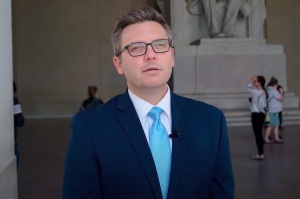President Obama Signs NDAA; Legalizing Indefinite Detentions Without Trial (VIDEO)
President Barack Obama has signed the National Defense Authorization Act (NDAA), which seeks to empower the federal government to fight the War on Terror.
The NDAA will give the U.S. military the power to carry out domestic anti-terrorism operations on U.S. soil, and allow the government to hold terrorism suspects indefinitely without trial, according to Forbes. The president reportedly had reservations about signing the bill. He said he didn’t fully agree with the bill in a statement.
“The fact that I support this bill as a whole does not mean I agree with everything in it,” President Obama said. “I have signed this bill despite having serious reservations with certain provisions that regulate the detention, interrogation and prosecution of suspected terrorists.”
The new laws in this bill are troubling to some people in the government because they think it threatens the civil liberties of Americans. NDAA will even allow the military to detain U.S. citizens without trial and also detain U.S. citizens abroad without trial.
Adam Serwer, a reporter at Mother Jones, has claimed that this defense bill could be used by this and future presidents to militarily detain people captured far from any battlefield. Obama insisted that he only signed the bill to keep the funding for troops even though he previously promised he wouldn’t sign the bill.
According to a report in The Guardian, Obama could have refused to sign the bill and Congress would still have funded the troops, but instead the White House misinformed the public to secure this power.
“As confirmed by Sen. Levin, the White House conducted a misinformation campaign to secure this power while portraying the president as some type of reluctant absolute ruler or, as Obama maintains, a reluctant president with dictorial powers,” Jonathan Turley wrote on the Guardian.
The bill reportedly expands the powers of the Patriot Act, which gave the government broad powers to fight the War on Terror. It expands the use of the U.S. military on domestic soil, complicating anti-terrorism strategies and raises questions about the role of military in law enforcement.
Critics believe that that the new anti-terrorism laws are bad for civil liberties, and argue that due process works for all other criminal acts. It has been questioned why terrorism requires new and expanded powers that seemingly ignore the constitution.

 The Christian Post Daily Report 01.02.12
The Christian Post Daily Report 01.02.12



























